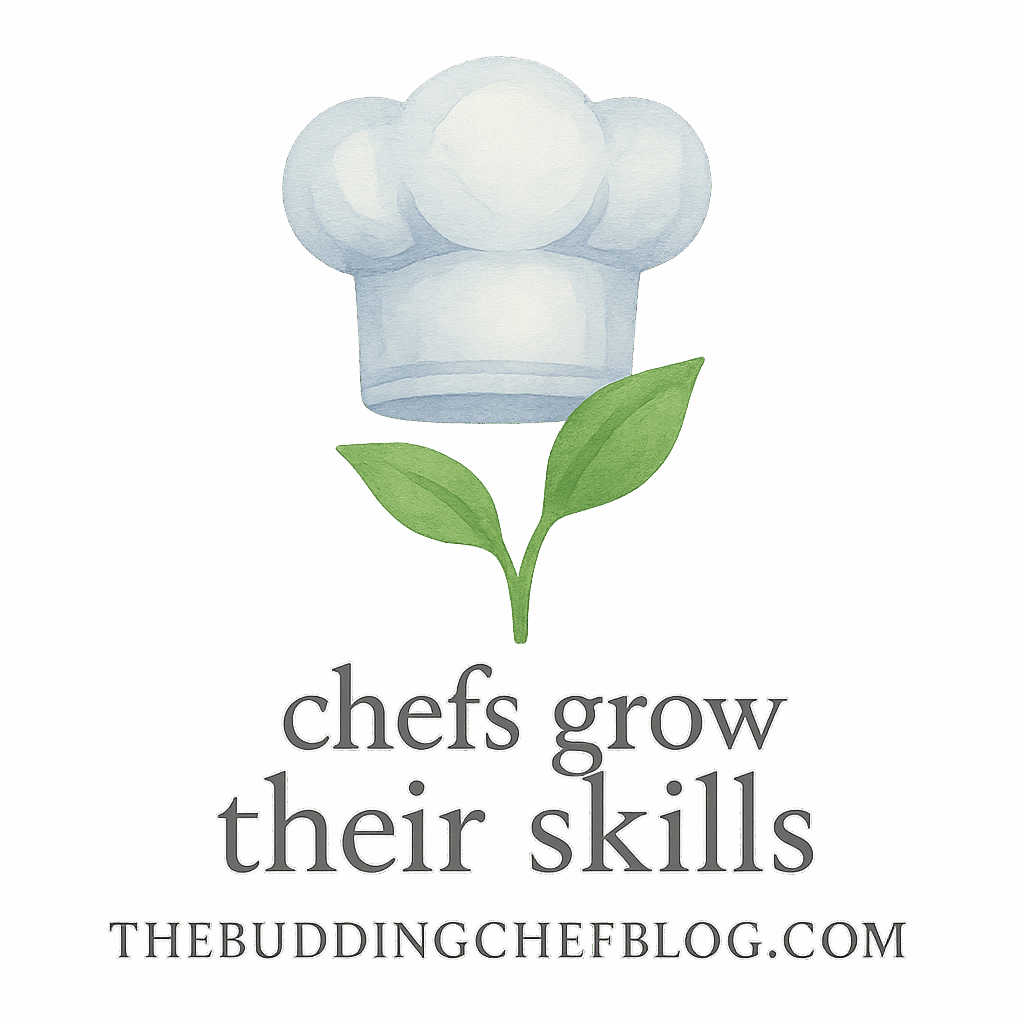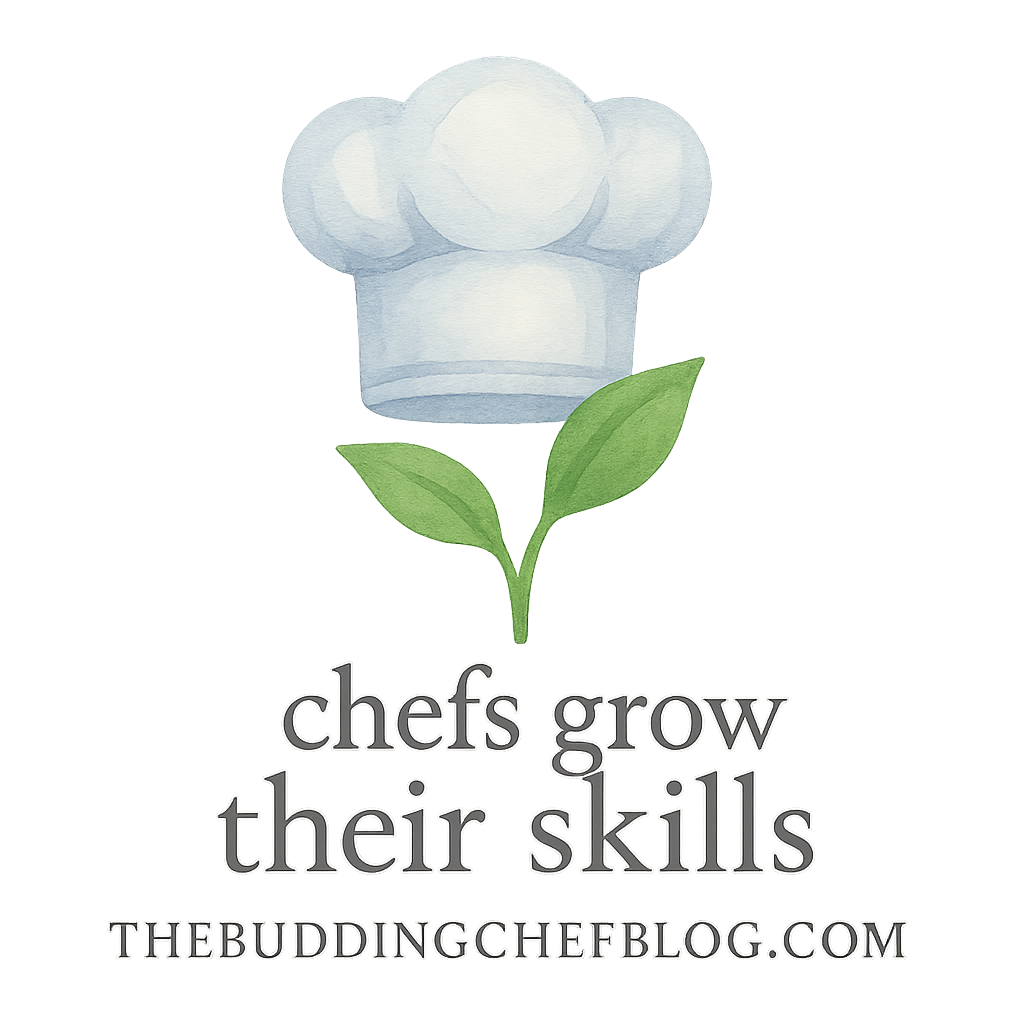Introduction
Ever wondered what separates successful beginner chefs from those who get stuck microwaving frozen dinners? It’s not all about expensive gadgets or going to culinary school. Nope, it usually comes down to a few consistent habits. These common habits of successful beginner chefs are the secret sauce that transforms casual cooks into confident culinary creators.
Whether you’re brand new to cooking or just starting to find your rhythm, this guide is your personal roadmap. Let’s dive into the must-have habits that will boost your kitchen confidence and get you cooking like a pro in no time.
1. Passion for Learning
Stay Curious About Cooking
Successful beginner chefs are naturally curious. They’re the ones who watch cooking shows not just for entertainment but to learn techniques. They Google terms they don’t understand. They ask, “What does that spice do?” instead of just tossing it in.
Want to feed that curiosity? Start with our Ingredient Knowledge hub and explore everything from herbs to pantry staples.
Explore New Recipes Regularly
Instead of sticking to one go-to meal, successful chefs love to try new things. Sure, your spaghetti is great—but what about Thai curry or Moroccan tagine?
Don’t forget to swing by Recipe Practice for inspiration and practice-worthy meals.
2. Mastering Basic Cooking Techniques
Knife Skills are Non-Negotiable
If you’re hacking at onions with a dull knife, we need to talk. Good knife skills improve safety and efficiency—two non-negotiables in any kitchen.
Check out our deep dive into Basic Cooking Techniques to sharpen your skills (pun intended).
Understanding Heat and Cooking Methods
Knowing when to sear, simmer, or roast can make or break your dish. Many beginners don’t realize that heat control is like the volume knob of flavor.
Basic Cooking Techniques can help you master this essential skill.
3. Ingredient Knowledge is Power
Know What You’re Cooking With
Successful beginner chefs know their ingredients. They read labels, understand where food comes from, and know how it reacts to heat and flavor.
Explore our Ingredient Knowledge section to boost your culinary IQ.
Seasonal and Local Ingredients
Cooking with seasonal ingredients isn’t just trendy—it’s delicious and often more affordable. Visit your local farmer’s market and get familiar with what’s in season.
This tip is also budget-friendly (see our budget tips).

4. Organized and Efficient Kitchen Setup
Mise en Place: Everything in Its Place
Mise en place is French for “putting in place,” and it’s a game-changer. Prepping ingredients before you turn on the stove saves stress and mistakes.
For more on efficiency, visit our Kitchen Tools & Equipment guide.
Investing in the Right Tools
You don’t need a $300 blender, but a sharp knife, sturdy cutting board, and reliable pans can change your life. Check out our posts on essential cookware and kitchen tools.
5. Consistent Practice and Experimentation
Make Time for Regular Cooking
Skill doesn’t show up overnight. Like any other talent, cooking improves with practice. Make it a point to cook a few times a week—especially recipes that challenge you.
You’ll love our Practice Tips for keeping your motivation up.
Learn from Mistakes and Adapt
Burned the garlic? Pasta too salty? Every mistake is a lesson. The best chefs laugh, learn, and keep going.
For motivation, visit our Improvement Tips section.
6. Smart Meal Planning
Weekly Prep Saves Time and Stress
Successful beginner chefs don’t wing it every night. They plan meals ahead of time, reducing food waste and weeknight stress.
Need help? Our Meal Planning section has all the tricks.
Cooking in Batches for Flexibility
Cooking in bulk means leftovers, lunches, and less time at the stove. Freeze extra soup, prep grains ahead, or marinate proteins for the week.
This is key for staying on track—and on budget. Explore more affordable meal tips.
7. Focus on Budgeting and Affordability
Affordable Doesn’t Mean Boring
Great food doesn’t have to cost a fortune. Many beginner chefs learn to cook delicious meals using just pantry staples and a few fresh ingredients.
Check out our budget-friendly recipes that deliver flavor without the splurge.
Plan Around Sales and Pantry Staples
Learning to build meals around what you already have is a core skill. Buy staples like rice, beans, and canned tomatoes in bulk.
Visit our Affordable Cooking section for a complete guide.
8. Growth Mindset and Professionalism
Take Feedback Constructively
Maybe someone says your soup’s too salty. Don’t take it personally—take it as a challenge to improve. Growth-minded chefs crave feedback.
For help building this mindset, check our Professional Growth content.
Keep Building Professional Habits
Even as a beginner, acting like a pro can change your whole approach. Clean as you go, respect your tools, and keep learning.
Tag along with other professional chefs and learn their secrets.
Conclusion
There you have it—the 8 common habits of successful beginner chefs. These aren’t just tips; they’re the foundation of becoming confident in the kitchen. It’s not about perfection, it’s about progress. So whether you’re just learning how to boil pasta or dreaming of opening your own food truck someday, start with these habits and keep growing.
And remember, every expert chef was once a beginner too.
Hungry for more? Dive into the rest of The Budding Chef Blog for guides, tips, tools, and inspiration to fuel your culinary journey.
FAQs
1. What’s the most important habit for beginner chefs to develop?
Consistency. If you cook regularly, you’ll naturally improve. Everything else flows from there.
2. Do I need expensive tools to be a good chef?
Not at all! Just a few reliable tools—like a chef’s knife and a sturdy pan—can make all the difference. Check out our kitchen tools guide.
3. How can I practice cooking on a budget?
Start by mastering simple, affordable meals using pantry staples. Our affordable recipes are a great place to start.
4. What if I make a lot of mistakes in the kitchen?
That’s totally normal! Mistakes are just stepping stones. Visit our Mistakes & Challenges tag for stories and solutions.
5. Where can I find beginner-friendly cooking techniques?
Right here: Basic Cooking Techniques. It’s your step-by-step learning lab.
6. How do I know which ingredients to use?
Learn about each ingredient’s flavor, texture, and use cases in our Ingredient Knowledge section.
7. How can I keep my cooking fun and not overwhelming?
Try new things in small doses. One new recipe a week, or just one new spice. It’s all about keeping it exciting and manageable. Follow our beginner chefs tag for easy inspiration.


